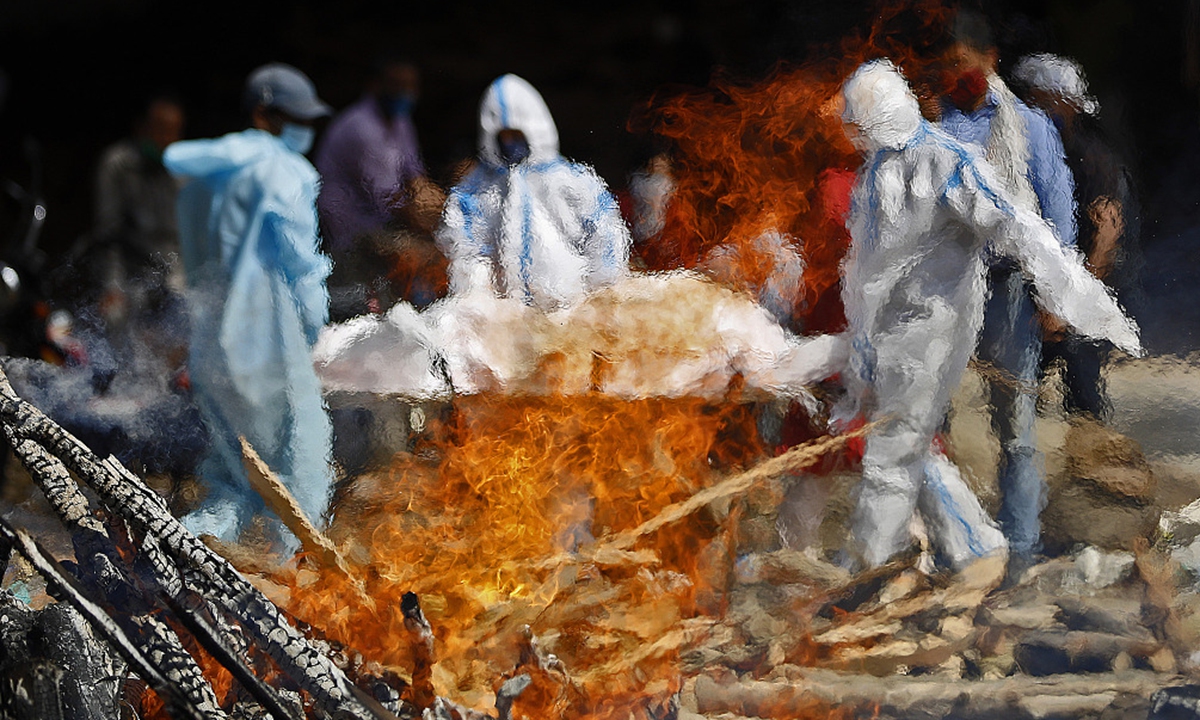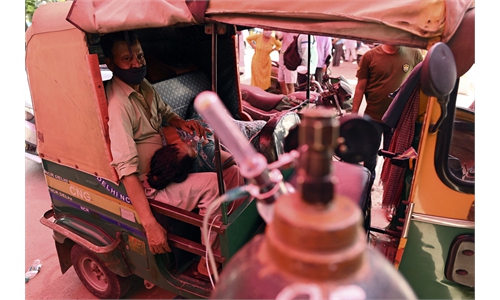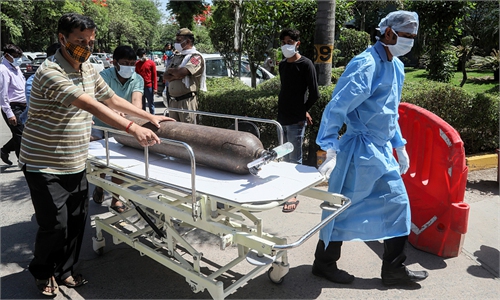
India coronavirus Photo:VCG
In the past few days as India is battling the deadly surge of COVID-19 infections and deaths, it has clearly felt how "unreliable" its close partner, the US, is. If there had not been pressure from China and other countries, the US may not offer any substantial assistance to India, not even a verbal promise.
Nonetheless, an article in Bloomberg on Monday said that China looks to stoke US-India tensions over the US' slow aid. But what do US media outlets such as Bloomberg expect from the world when Washington shows startling indifference and inaction when asked for help? The selfishness of the US in the face of a COVID-19 crisis in India is tantamount to a stab in the back of its partner. Yet US media blamed China for stoking tensions.
As many Chinese people voiced their sympathy and championed the cause of justice for India, many Indian netizens appreciated such support.
The US eventually agreed to offer help. The US has announced it will share up to 60 million doses of the AstraZeneca COVID-19 vaccine with other countries. Obviously, it is not all for India. Moreover, it is unknown when the vaccine could be shipped, as the US Food and Drug Administration (FDA) needs to complete a safety review process.
It is doubtful whether the late actions of the US could heal the scars the US left on the heart of India. Don't forget that exactly one year ago, India shipped 50 million tablets of hydroxychloroquine to the US to help it combat the virus at a time when the death toll in the US ranked the highest in the world and doctors were desperate for anything that might alter the course of the disease. Then US president Donald Trump tweeted that India and the Indian people "will not be forgotten," and Modi responded by saying "The India-US partnership is stronger than ever." India has behaved as a friend in need, but when the US is needed, it just backtracks.
The US agreed to help only because it feels that if it does not lend a helping hand, it would lose an important chess piece to contain China, and its self-claimed international credibility and the hegemonic status would be in jeopardy. Also, India's surging cases that know no boundaries pose a potential risk to the US.
The US role as a reliable ally has already been further hit. It has disappointed its European allies when it sat on tens of millions of AstraZeneca doses but did not let the Europeans have them. The losing credibility of the US is perhaps one of the reasons for India's reluctance to join the US-led military alliance system.
As early as 2018, an article in the Delhi-based Observer Research Foundation pointed out that the US "has selfishly only considered its own interests rather than those of its partners" and called on India to "reconsider the depth to which it is willing to engage the US in the strategic domain."
In the face of US indifference and insincerity, India has unfortunately become the victim of US selfishness. Some Indians are calling for India to leave the US-led Quad, whose central objective is to counter China. The benefits of US allies and partners attaching to the US anti-China chariot could get scarce. If the Quad group falls apart one day, the US has only itself to blame, not China.




